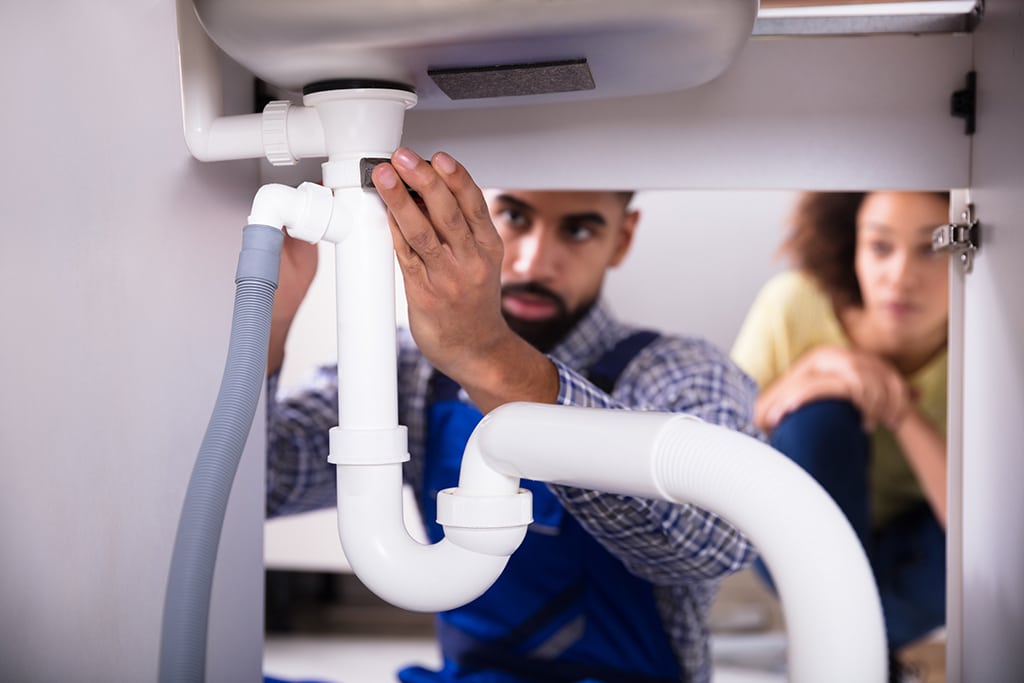This article which follows in relation to How to handle a clogged drain in your home is exceptionally attention-grabbing. Don't skip it.

Intro
Handling a blocked drain can be a discouraging experience, disrupting day-to-day activities and potentially triggering damage to your building. Nonetheless, prior to connecting to pipes experts, there are steps you can require to address the issue yourself. In this guide, we'll check out do it yourself services and safety nets to tackle an obstructed drain efficiently.
Identifying the Concern
The primary step in dealing with a blocked drainpipe is acknowledging the indications. Slow drainage, gurgling sounds, foul odors originating from drains pipes, or water backing up prevail signs of a blocked drain. Recognizing these indicators early can help stop additionally issues.
Selecting the Right Plumbing Service
When selecting a pipes solution, consider elements such as experience, licensing, and consumer evaluations. Pick a trustworthy plumbing technician with a track record of high quality craftsmanship and clear rates practices.
Cost Factors to consider
The price of specialist drainpipe cleaning company can differ depending upon the intensity of the obstruction and the plumbing's rates. Request quotes from multiple suppliers and ask about any kind of added fees to guarantee transparency and prevent shocks.
Safety and security Measures
When attempting do it yourself drainpipe cleansing, focus on safety and security. Wear safety gloves and glasses to stay clear of contact with hazardous chemicals or microorganisms. Never mix various drainpipe cleaning items, as this can create harmful fumes.
Instance Studies
Real-life examples show the efficiency of do it yourself options and the importance of timely specialist intervention in fixing drainpipe clogs.
Common Causes of Blocked Drainpipes
Understanding the elements that add to drain pipes clogs is essential for efficient resolution. Common perpetrators include hair, soap residue, oil, food particles, and foreign things like hygienic products or paper towels. Tree roots invading underground pipelines can likewise trigger considerable clogs.
DIY Solutions
For small obstructions, several DIY options can be reliable. Putting boiling water down the drain can aid dissolve oil and particles. Sodium bicarbonate and vinegar or a blend of salt and baking soft drink can work as all-natural cleansers. Using a bettor or plumbing snake to remove obstructions is another option.
Tools and Tools
Having the right devices on hand can make DIY drainpipe cleansing extra reliable. A plunger is a functional tool for removing obstructions in sinks, bathrooms, and showers. A plumbing snake or auger can reach much deeper obstructions, while drain cleaning chemicals can be used cautiously for stubborn blockages.
Safety nets
To stay clear of future obstructions, embracing preventive measures is important. Set up drainpipe guards or filters to capture hair and debris before they go into the pipes. Frequently flush drains with hot water to liquify grease accumulation, and stay clear of getting rid of grease or solid waste down the tubes.
When to Call a Professional
While do it yourself solutions can fix minor obstructions, particular indicators show the demand for professional support. Consistent obstructions, foul odors regardless of cleaning efforts, or numerous drains supporting all at once are red flags that warrant professional treatment.
Conclusion
By complying with the tips outlined in this overview, you can properly take on obstructed drains and protect against future plumbing concerns. Whether opting for do it yourself remedies or seeking expert assistance, punctual activity is vital to maintaining a healthy plumbing system and protecting the stability of your home.
HOW DO PLUMBERS AND DRAINAGE EXPERTS CLEAR BLOCKED DRAINS?
Most of us have dealt with a backed up drain at some point in our lives! Whether it’s in our home or at our business, when the toilet begins to overflow or the sink doesn’t drain properly, we ultimately seek help from professionals to clear wastewater lines and get things flowing again.
Sure, you can attempt every possible drain hack in the hopes that your line clears but, often, it’ll require more than just pouring something down the drain. Keep in mind too, that pouring acid-based liquid cleaners down your drain can result in even more problems. If unable to clear – and pass through – the clog, it’ll sit in the line and begin to eat away at the pipe. Calling a plumber or professional to clear your drain might be your last resort but it’s the proven result. So, what do they do, and what type of equipment do they use, to get rid of a blocked drain line?
How Do Plumbers And Drainage Experts Clear Blocked Drains?
To better understand exactly where the problem is located, experts will typically start with an assessment and a video sewer inspection. Using non-invasive equipment that enters and exits through the pipe, these cameras offer a look inside the pipe and can spot anything from buildup, to forming clogs, to tree roots to small holes that could be a future problem – in real-time. It can see up to 150 feet of even the hard-to-reach places of the line, so there’s nowhere to hide.
https://www.zoomdrain.com/blog/2023/january/how-do-plumbers-and-drainage-experts-clear-block/

I discovered that blog entry about while surfing around the internet. Sharing is good. Helping people is fun. I praise you for being here. Kindly check our site back soon.
Request An Appointment